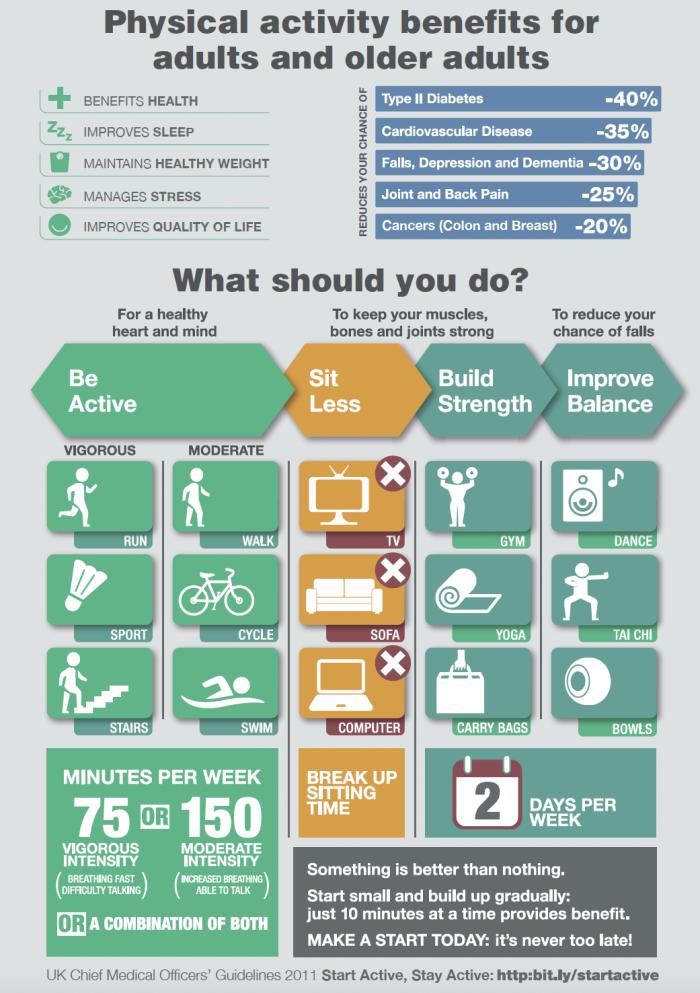Neck pain
Dealing with neck pain
Being active
Being active can help reduce neck pain. Exercise supports recovery and acts as a natural pain reliever. There’s no single “best” type of exercise, so try different activities that you enjoy, like walking, cycling, or aqua aerobics.

Keep up with your usual daily activities, including work, social events, and hobbies, where possible.
If you are local to Sheffield and you would like support to increase your physical activity, then you can
- Self-refer to Move Well for personalised support and access to a wide range of physical activity opportunities, tailored to your specific needs and preferences.
- Find sport, leisure and activity groups in your local area.
- For more activity tips, visit our physical activity page under the wider health section of the website.
Heat or Ice treatment
Heat packs
A warm pack can help ease muscle tightness and pain. Use a microwaveable wheat bag or hot water bottle wrapped in a towel for 15-20 minutes, 2-3 times a day. Avoid using heat on swollen areas.
Ice packs
Ice can numb pain. Apply an ice pack (or frozen vegetables wrapped in a towel) for up to 10 minutes, 2-3 times a day.
Pain medication
Pain medication can help you stay mobile. Consult your GP or pharmacist for advice.
Your lifestyle
A healthy body speeds up recovery. A balanced diet, regular activity, not smoking, and maintaining a healthy weight all help. Small lifestyle changes can improve recovery and reduce future pain. For more on healthy lifestyle, check out our Wider health section.
Further Treatment
Physiotherapy
Most people recover from neck pain on their own, especially if they stay active and continue with their normal daily activities. Short periods of rest are fine, but it’s important to get moving again as soon as possible.
However, some people may benefit from more tailored treatment, such as physiotherapy. Physiotherapy typically focuses on active recovery with personalised exercises. While recovery times vary, it can take 3-6 months of consistent effort to see significant improvements. If you need extra support, a physiotherapist can guide you through a plan to help you recover fully.